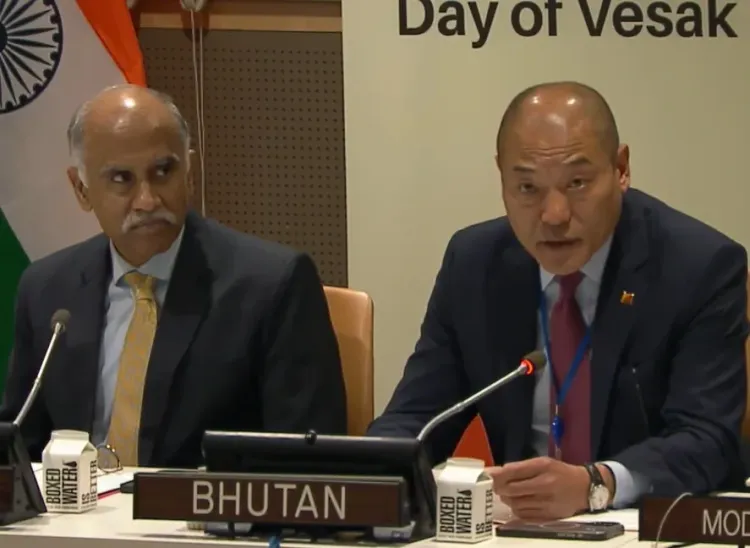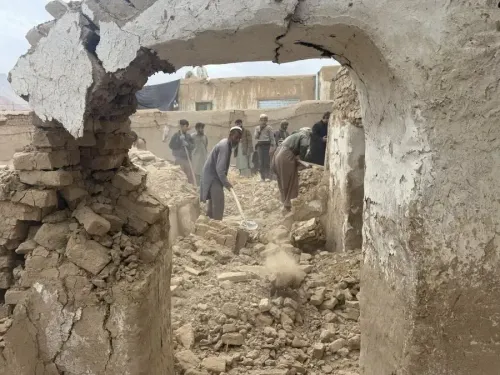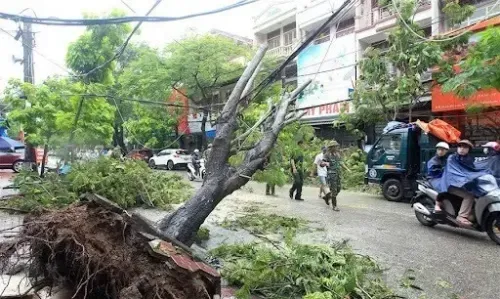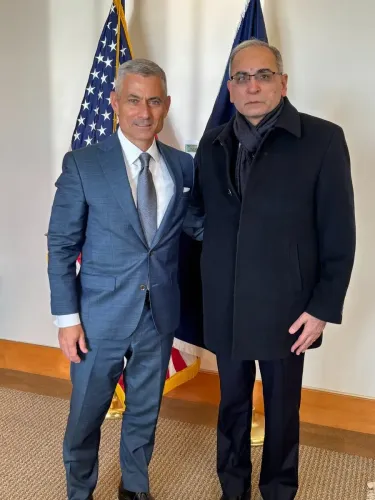How Can Buddha's Teachings Guide Us in a World on Fire?

Synopsis
Key Takeaways
- Inner peace is critical for achieving global harmony.
- Buddha's teachings can transform societies.
- Compassion can help solve national and international problems.
- Violence may require ethical consideration beyond strict adherence to non-violence.
- Reformation of the mind is essential for global change.
United Nations, May 16 (NationPress) In a world that is "on fire" due to wars, economic conflicts, poverty, and environmental destruction, diplomats and scholars have sought wisdom from the teachings of Buddha, which date back over 2,500 years. During a discussion hosted by India at the UN titled 'Teachings of Gautama Buddha -- a Path to Internal and Global Peace', participants unanimously agreed that inner peace is the foundation for achieving international harmony.
Santosh Kumar Raut, a Visiting Professor at Harvard Divinity School, emphasized, “Let us recognize that the world is in a crisis, as Buddha says, ‘The world is on fire’”. He pointed out that our planet faces numerous challenges, such as environmental disasters, climate change, nuclear proliferation, wars, and the decline of democratic institutions, which contribute to societal polarization and growing economic inequalities that fuel extremism and threaten collective security.
Raut added, “When we act with compassion and respect, many of our national and international problems will fall into perspective and become easier to solve”. He highlighted that Buddha understood that meaningful change begins with transforming one’s inner consciousness.
India’s Permanent Representative, P Harish, stated, “The path of Buddha offers us practical means to develop lasting peace within ourselves as well as in the external world”. He elaborated that the transformative power of Buddhism extends beyond individuals, capable of changing entire societies and nations.
Beginning with personal and interpersonal peace, Harish described a progressive journey that ultimately leads to what we now refer to as international peace, involving harmony among groups and nations. He noted, “This represents the final stage of cultivating peace and compassion among societies and nations”.
Moreover, Harish acknowledged that, in the face of violence, the welfare of the people may necessitate actions that transcend the principle of 'ahimsa' to ensure their protection. He explained that Buddha’s teachings provide essential guidelines for navigating these complex situations.
He urged, “Rulers and decision-makers must deter aggression and calculated violence by nations driven by political ambitions, such as territorial expansion, or by nonstate actors and terrorists who create fear and havoc due to their extremist ideologies”. The ethical nature of our actions should be evaluated on both adherence to rules and the underlying motivations.
Bhutan’s Permanent Representative, Pema Lektup Dorji, remarked, “India holds a revered place in the spiritual heritage of humankind.” Sacred locations like Bodh Gaya, where Prince Siddhartha attained enlightenment, are deeply respected by Buddhists globally. Thailand’s Cherdchai Chaivaivid stressed that “the world cannot be reformed without reformation of the mind”.
Russia’s Deputy Permanent Representative, Dmitry Chumakov, highlighted the importance of internal change in diplomacy, stating, “Buddhism has a genuine peacemaking philosophy”. Abhay Kumar Singh, Vice Chancellor of Nalanda University, stated, “Peace is not born out of conquest, but from renouncing the notions of victory and defeat”.









